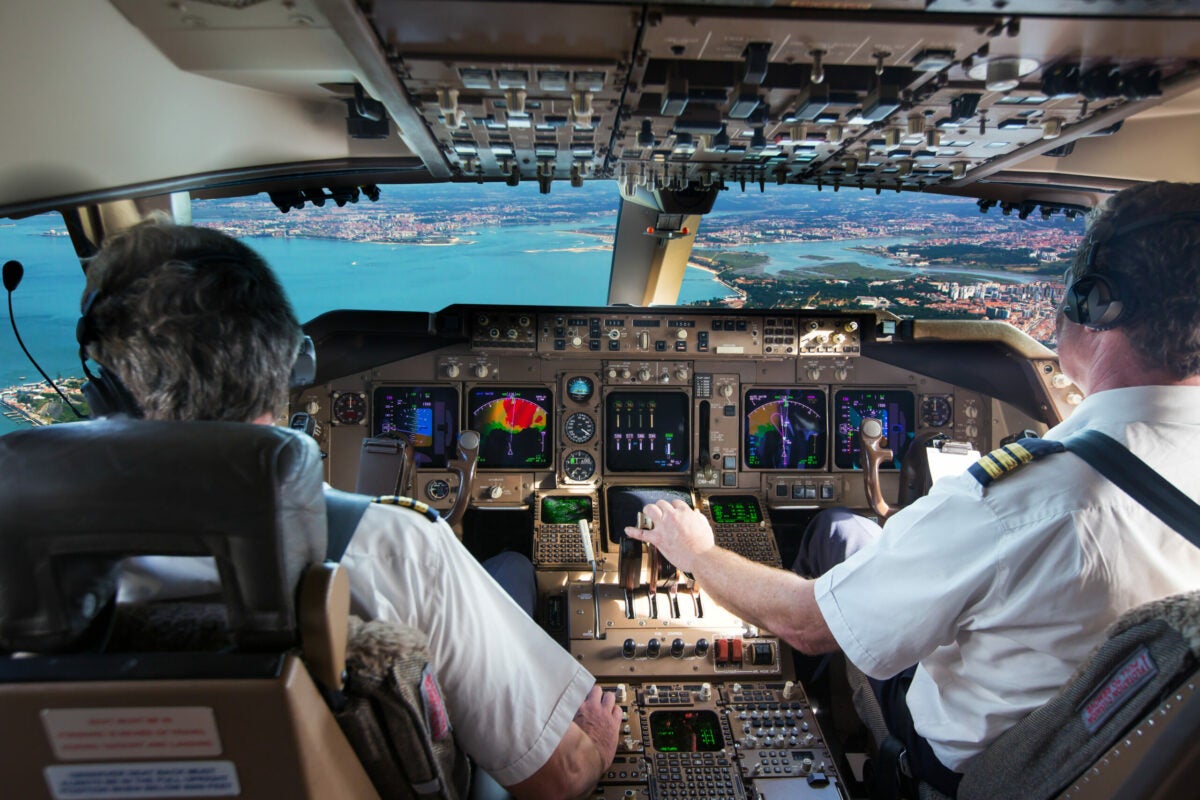When it comes to career earnings, airline pilots can bring in a salary comparable to a doctor, lawyer, or engineer. That’s according to Torrance, California-based Sling Aviation Academy, a flight school that specializes in accelerated training for persons who want careers as airline pilots.
In a video called “Millionaire by 25 Without College,” Sling Aviation Academy co-CEOs Matt Liknaitzky and Wayne Toddun compare the path to becoming a doctor, lawyer, engineer to that of becoming an airline pilot.
According to the pair, a comparison of the amount of education required for each career, the length of the education required, and the time for return on investment indicates that professional pilots only need months—rather than years—to obtain the education required to do the job.
“Each of those traditional, stable careers, they require a four-year college degree at the very least,” Liknaitzky said.
“It used to be that being a commercial pilot, if you wanted to fly for the major airlines, it used to be that you’d need a four-year degree for that,” Toddun said. “But all of the big airlines now have dropped that requirement.”
By age 65, a commercial pilot’s total career earnings would surpass $13 million, compared to those of a doctor ($7.6 million), lawyer ($5.8 million), and engineer ($5 million), according to analysis presented by the pair.
A pilot is able to begin generating an income by the third year, Liknaitzky said.
New Paradigm
“Don’t tell my mom I’m a pilot. She thinks I play piano in a whorehouse.”
This slogan, printed on T-shirts, bumper stickers, and refrigerator magnets, usually gets a chuckle from professional pilots who remember a time when their choice of vocation was viewed with some disdain, as the annual salary for someone flying professionally was about that of a fast food worker.
As such, for decades many wanna-be pilots were pressured to pursue high-paying jobs as medical doctors, lawyers, or engineers. All of these vocations require several years of college, a degree, and often internships, which equates to a lot of time spent learning before you begin earning. Society always needs people in these vocations.
For the professional pilot wanna-be, things were a bit more haphazard. There were several months of hands-on learning followed by years of experience building and—if you were lucky, in the right place at the right time with the right contacts, and had a college degree—you might get a shot at an airline job at a regional carrier. Still, it would take decades before you made money you could support a family on.
The current pilot shortage has changed this paradigm.
The salary for airline pilots of all levels has increased substantially over the past five years as the pilot shortage has made air carriers compete for pilots. Some of the methods used are increasing pay, offering sign-on bonuses, and the so-called pipelines from flight schools to airlines that help subsidize a pilot’s training.
According to the U.S. Bureau of Labor Statistics, the median annual wage for airline pilots is around $202,180. Medical doctors came in with a salary of $208,000, lawyers $127,990 and engineers with a median annual wage of $79,840. To be a doctor, lawyer, or engineer, you can expect to pay for several years of college—and possibly a master’s degree. For doctors, add in years of residency.
Professional pilots, on the other hand, have a much shorter path between the “learn” to the “earn” phase.
Industry Shift Opens Doors
What had kept many qualified pilots from careers at the airlines was the requirement for a college degree—you probably know someone with thousands of hours who was held back from a career at a carrier because they did not have a college degree.
Liknaitzky noted that now that the airlines have dropped the degree requirement, getting into the cockpit takes a matter of months rather than years, and compared to the number of years spent getting an education, and the cost of that education against the resultant salary, airline pilot comes out on top—so being a pilot has now become “a respectable career” based on seniority (who was hired first) and pilot proficiency.
For the person who is looking for a home/work balance Toddun commented that airline pilots “only work two weeks a month.” Actual flight schedules vary widely based on the airline.
